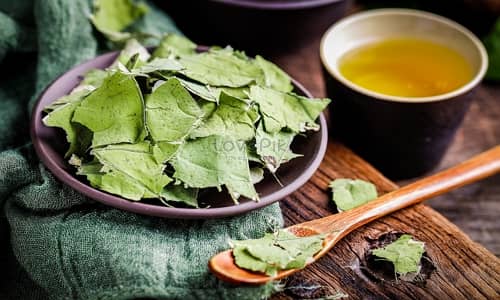Lotus leaf tea benefits, caffeine, how to make it delicious
Lotus leaf tea Nutrition

| Lotus leaf tea (100g) Nutrition | |||
| Carbohydrate | Protein | Fat | Calories |
| 3g | 0.3g | 0g | 12kcal |
| Main Nutrition | Vitamin B, Vitamin C | ||
| Main Benefits | Helps regulate blood sugar levels and blood circulation, improves blood flow, prevents aging | ||
| Side Effects | It has cold properties, so excessive consumption can cause stomachache and diarrhea. | ||
The lotus flower in lotus leaf tea has always been considered an important symbol of tranquility, peace, beauty and purity because of the way the flower floats peacefully on the water. Since ancient times, lotus leaves have played an important role in alternative medicine and have been praised by kings and queens, scholars and monks. The slightly bitter leaves have many health benefits, but their main properties have to do with helping the liver detoxify the liver and keeping it healthy.
2. Lotus leaf tea Benefits

1. Prevention of diabetes
Lotus leaf tea can prevent diabetes. The compounds in lotus leaves effectively protect the body from damage caused by sugar level system settings. Diabetes occurs because the body is unable to regulate blood sugar levels, and damage to the body’s insulin system can lead to disease and complications in the kidneys, heart, etc. Therefore, lotus leaves help stabilize blood sugar levels and help the body produce insulin. Lotus leaves make blood vessels more relaxed, improving and increasing blood flow, regulating blood sugar levels, which is useful in preventing the development of blood sugar or diabetes, and has a low glycemic index.
2. Blood circulation
Lotus leaf tea promotes blood circulation, increasing oxygen supply to organs and increasing function and energy levels. Lotus leaves contain potassium, which helps maintain fluid balance and prevent the effects of sodium in the bloodstream. Potassium acts as a vasodilator, helping to relax blood vessels, reduce stiffness and constriction, increase blood flow, and lower stress on the cardiovascular system. Potassium is essential for nerve activity and transport of blood and fluids to the brain. Therefore, lotus leaves help blood circulation and improve vascular diseases.
3. Antioxidant effect
Vitamin C in lotus leaves is an antioxidant found in large amounts. It is essential for collagen formation. Helps maintain the strength and integrity of organs, blood vessels, and skin. Lotus leaves improve immune function and eliminate free radicals in the body that cause health conditions such as heart disease and cancer. Additionally, the antioxidant activity of lotus leaves prevents eye diseases such as macular degeneration, accelerates the healing process, and reduces inflammation and skin diseases.
4. Prevention of aging
The enzymes present in lotus leaves and their effectiveness in discharging free radicals without allowing them to accumulate in the body inhibit aging of the body. This is an enzyme that helps repair and maintain damaged proteins and promotes collagen synthesis in the body. This reduces wrinkles and fine lines on the skin. Additionally, aging of the body can cause various diseases. Accordingly, lotus leaves release free radicals from the body without allowing them to accumulate, slowing down the aging process of the body and maintaining cell membranes to prevent various diseases.
3. Lotus leaf teaHow to make tea
4. Lotus leaf tea Side Effect
- Excessive consumption of lotus leaf tea may cause symptoms such as indigestion, abdominal pain, and diarrhea.
- Lotus leaf tea has a cold nature, so people with a cold body may experience abdominal pain if consumed, so it is recommended to consume only moderate amounts.